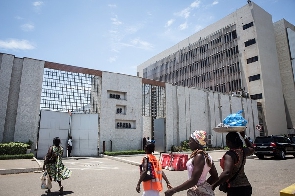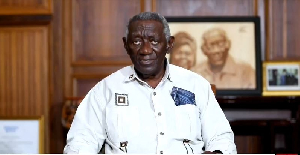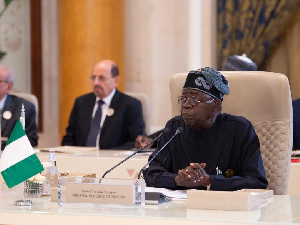Governor of the Bank of Ghana (BoG), Dr Ernest Addison, has revealed that non-Performing Loans (NPL) ratio increased from 14.3 percent in December 2019 to 15.7 percent in June 2020 arising from the pandemic-induced repayment challenges.
However, he said, it declined to 14.8 percent in December 2020 due to loan write-offs and increased credits, particularly during the last quarter.
In a statement announcing that the BoG has kept the policy rate at 14.5 percent, on Monday, February 1, Dr Addison said, implementation of the COVID-related regulatory reliefs and policy measures helped support lending activities.
New advances in 2020 grew by 15.8 percent to GH¢34.4 billion in 2020, he said.
Banks provided support and reliefs in the form of loan restructuring and loan repayment moratoria to cushion 16,694 customers severely impacted by the pandemic.
Total outstanding loans restructured by banks as at December 2020 amounted to GH¢4.47 billion, representing some 9.4 percent of industry loan portfolio.
“Non-Performing Loans (NPL) ratio increased from 14.3 percent in December 2019 to 15.7 percent in June 2020 arising from the pandemic-induced repayment challenges, but declined to 14.8 percent in December 2020 due to loan write-offs and increased credits, particularly during the last quarter,” he said.
He further stated that Commodity price trends traded mixed in 2020, influenced by COVID-related global market conditions. Crude oil prices declined by 22.9 percent year-on-year in December 2020, driven mainly by weak demand. Crude oil prices averaged US$50.2 per barrel, compared with US$65.2 per barrel a year ago.
“In contrast, gold prices went up by 25.4 percent to an average of US$1,857.2 per fine ounce, strongly supported by accommodative monetary policy, increased uncertainty, and the global economic slowdown due to the pandemic. Cocoa prices averaged US$2,581.3 per tonne in December 2020, up by 2.5 percent on a year-on-year basis.
“These commodity price developments impacted on the trade balance. Total exports contracted by 7.8 percent year-on-year to US$14.5 billion in 2020, driven mainly by a significant decline of US$1.6 billion in crude oil export receipts on the back of low prices. Gold and cocoa export earnings, on the other hand, went up by 9.1 percent and 2.1 percent respectively, due to favourable prices and production volumes.
“Total imports went down by US$974 million to US$12.4 billion, underpinned by significant declines in both oil and non-oil imports. Consequently, the trade balance recorded a lower surplus of US$2.0 billion (3.0 percent of GDP) in 2020, compared with US$2.3 billion (3.4 percent of GDP) in 2019.”
Business News of Tuesday, 2 February 2021
Source: 3news.com

















